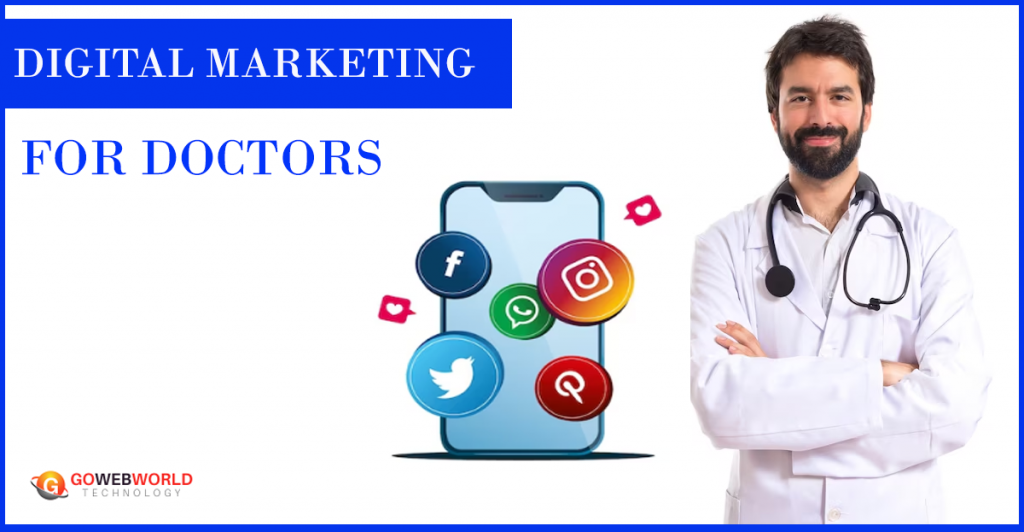Digital marketing is an essential component for doctors and healthcare professionals to grow their brand and reach a wider audience in 2023. With the ever-increasing use of the internet and social media, implementing effective digital marketing strategies can help doctors establish their online presence, build credibility, attract new patients, and retain existing ones. Here are some key areas to focus on:
Develop a Professional Website:
A well-designed website is crucial for doctors. It should be user-friendly, visually appealing, and provide important information such as services offered, expertise, contact details, and patient testimonials. Incorporate search engine optimization (SEO) techniques to ensure your website ranks well in search engine results.
Content Marketing:
Create valuable and educational content to position yourself as an authority in your field. This can include blog posts, articles, videos, infographics, and podcasts. Address common health concerns, share tips, and provide insights to engage with your target audience. Promote your content through social media, email newsletters, and online communities.
Social Media Marketing:
Establish a strong presence on social media platforms relevant to your target audience. Create and share content regularly, engage with followers, and respond to their queries. Use platforms like Facebook, Twitter, LinkedIn, and Instagram to share updates, health news, patient success stories, and educational content. Consider paid advertising options on social media to reach a wider audience.
Online Reviews and Reputation Management:
Positive reviews and testimonials from satisfied patients can significantly impact your reputation. Encourage patients to leave reviews on platforms like Google My Business, Yelp, Healthgrades, and RateMDs. Monitor and respond to reviews promptly, both positive and negative, to show your commitment to patient satisfaction and care.
Search Engine Optimization (SEO):
Optimize your website to rank higher in search engine results. Identify relevant keywords and incorporate them into your website’s content, meta tags, headings, and URLs. Ensure your website is mobile-friendly, loads quickly, and has secure browsing (HTTPS). Consider local SEO strategies to target patients in your area.
Pay-Per-Click (PPC) Advertising:
Consider running PPC ads on search engines like Google or Bing to appear at the top of search results for specific keywords. PPC can help drive targeted traffic to your website and increase visibility. Set a budget, monitor your campaigns, and optimize them for better results.
Email Marketing:
Build an email list of interested patients and send regular newsletters with updates, health tips, educational content, and promotions. Personalize the emails and segment your audience based on their interests and preferences. Ensure compliance with privacy regulations, such as obtaining consent and providing an opt-out option.
Telemedicine and Online Appointment Booking:
Embrace telemedicine services and provide an online appointment booking system for convenience. Promote these services through your website and social media channels. Ensure a smooth and secure experience for patients by using HIPAA-compliant platforms.
Collaborate with Influencers and Referral Partners:
Identify influencers, bloggers, or other healthcare professionals who share your target audience and collaborate with them. This can involve guest blogging, joint webinars, or social media partnerships. Cultivate relationships with referring doctors and healthcare providers to increase referrals.
Analyze and Track Results:
Use analytics tools to measure the effectiveness of your digital marketing efforts. Track website traffic, engagement metrics, conversion rates, and patient inquiries. Adjust your strategies based on the data to optimize your digital marketing campaigns.
Remember to comply with all relevant regulations, such as the Health Insurance Portability and Accountability Act (HIPAA), when implementing digital marketing strategies in the healthcare industry.

